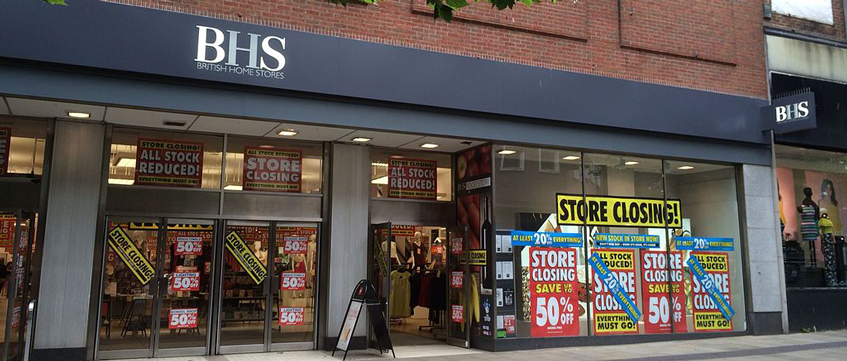Landlords that have been left out of pocket as a result of company voluntary arrangements agreed with collapsed retailers have won a crucial high court ruling that will see them minimise their losses.
Collapsed retail chain British Home Stores will have to repay rental discounts it agreed with its landlords following the case against Prudential, landlord of two former BHS stores in Chester and Southend.
Prudential won a ruling that the 25% discount in rent agreed as part of BHS’s company voluntary arrangement with creditors in 2016 should be repaid following the chain’s liquidation. The high court also ruled that the sums are payable as an administration expense, in priority to other debts.
The decision will also apply to other BHS landlords that agreed rental discounts as part of the CVA, some of which lowered the price payable by as much as 75%.
The case sets a new precedent for landlord negotiations with struggling retailers that have entered into a CVA. The insolvency process has become a popular tool for under-pressure retailers and restaurant chains to improve their financial position by reducing rents and off-loading leases.
This week, fashion retailer New Look confirmed it was going ahead with a CVA that could result in 60 store closures.
Under the terms of the CVA, BHS agreed that, if it was terminated, the rent discounts would be treated as if they never happened, and the full rents would have to be paid. As a result of BHS ultimately entering liquidation, the CVA was terminated.
This, the judge said, had “substantially increased” BHS’s liabilities to Prudential after the commencement of the liquidation.
BHS’s liquidators sought directions from the high court on whether the chain is obliged to honour the agreement to pay the full sums, dating back to the date of approval of the CVA. They argued that the termination provision in the CVA amounted to an unenforceable contractual penalty.
However, the judge rejected the liquidators’ case and ruled in favour of Prudential. He found that the rule against penalties should not apply to CVAs.
The ruling provides important guidance on the payment of rent as an expense of a company’s administration in priority to other debts.
Stephanie Pollitt, assistant director of real estate policy at the BPF, said: “With CVAs seemingly the go-to restructuring option for national retail and leisure brands, it will give some comfort to landlords to know they won’t be penalised further down the line if supporting a rescue package doesn’t achieve the desired outcome.
Adam Deacock, barrister at Radcliffe Chambers, said that the decision would be of concern to administrators of companies with leasehold property and to creditors generally, and may influence how CVAs are negotiated in future.
He said that it was unsurprising that Prudential’s claim in this case, for rent at the original rate in respect of two former BHS stores, was upheld, as CVAs usually provide that. If they are not completed, the creditor can claim the full amount of their debt.
But he said: “The application of the ‘salvage principle’ to rent for property while used for the purpose of the administration had dramatic consequences.
These claims were given priority over those of other creditors and even over the administrators’ fees. The same could in principle apply to any other creditors supplying the administrators at a reduced rate during a CVA.”
To send feedback, e-mail jess.harrold@egi.co.uk or tweet @jessharrold or @estatesgazette











